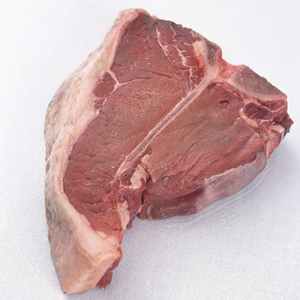
The Banting diet has a cult following for those wanting to drop kilos or cut their risk of lifestyle diseases. But contrary to popular belief, this way of eating is supposed to be high in fat, not protein. Misguided dieters end up eating more red meat, and sometimes even processed meat!
Read: The 10 golden rules of banting
For decades we’ve heard red and processed meats are bad for us. Saturated fats, a component of red and processed meats, have taken the blame for heart disease and many other ailments.
But, as it turns out, saturated fat isn’t so bad for us after all. Have red and processed meats been exonerated? No.
Other components in red and processed meats may still be bad for us. This would explain past health concerns linked to meat – conditions like heart disease and cancer, and also diabetes, metabolic syndrome and obesity.
Painting unprocessed red meat and processed meat with the same brush may be the biggest mistake of all – with potentially deadly consequences.
Read: Processed meat could kill you
Red vs processed
In the past when studying their effects on health, red and processed meat have been lumped into one category called “red meat”. These studies have found that so-called red meat increases heart disease risk, and may also increase the risk of other chronic diseases.
A 2010 study was conducted to resolve whether red or processed meat is to blame. Evidence revealed that red meat wasn’t the culprit at all, while processed meat took the full brunt of the blame for numerous health issues. Another study published in 2013 supported these findings.
Importantly however, not all studies agree that red meat is risk-free. A 2012 study concluded both unprocessed red meat and processed meat increase people’s chances of dying of all causes, including heart disease and cancer.
Lifestyle diseases
When it comes to heart disease, the scientific debate rages on. Some supporting evidence shows that only processed meat increases risk; other findings indicate unprocessed red meat only slightly increases risk, or doesn’t at all.
Salt remains a major risk factor for heart disease, and other preservatives may also be contributing factors.
Read: Red meat causes heart failure
Previously, saturated fats and cholesterol in both meat types have been held responsible for raising heart disease risk. Recent evidence however seems to refute this; the culprits may in fact be other components, like L-carnitine, choline and heam iron. Yet other research has also questioned this theory.
Interestingly, toxic compounds produced within meat when it’s cooked at high temperatures may also increase heart disease risk.
Recent evidence may suggest otherwise, but most studies indicate both unprocessed red meat and processed meat increase your chances of developing type II diabetes. Again, processed is deemed far worse. The increased risk appears to be partially due to weight gain in people who eat these meats.
Read: Meat linked to weight gain
A 2007 report concluded the evidence linking red and processed meat to colorectal cancer was convincing. A subsequent study – funded by the meat industry – claims insufficient evidence was used to make that conclusion.
While most recent studies support the initial findings, the industry-funded study does have a valid point, as many of the studies grouped processed and red meat together. So the relationship with cancers remains unclear.
Overestimated harm
Have the harmful effects of unprocessed red meat been overestimated? Some researchers say that people who eat lots of red meat usually have other less favourable lifestyle and dietary behaviours that could explain their increased health risk.
These might include exercising less; smoking; binge drinking; and eating too many calories and trans fats and too few healthy foods like fruit, vegetables, fibre and fish.
Banting or not, you are gambling with your health when you eat processed meat. But the jury is still out on unprocessed red meat.
While eating unprocessed red meat may carry little risk after all, until we know more, it’s probably prudent to limit red meat to less than 500g a week, with very little if any of this being processed.
And wherever possible, choose less contentious high-quality protein sources – like fish and poultry – instead.
Note: This article appeared in the July/August 2014 isdue of Health Intelligence Magazin. For more thoughtful science and health reads and news, get your copy of Health Intelligence, on sale now at leading bookstores around SA.
Read more:
UCT professors slam Tim Noakes
The lowdown on low carbs
What Tim Noakes eats




 Publications
Publications
 Partners
Partners









